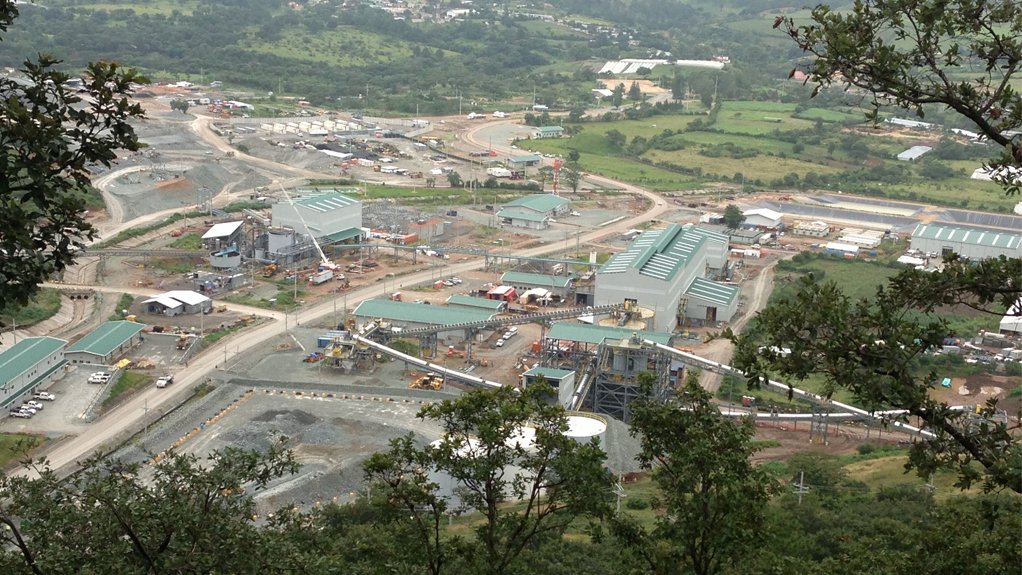TORONTO – Tahoe Resources, whose flagship Guatemalan mine has been suspended, is taking steps to cut costs, including possibly slowing an expansion of a project in Peru and trimming exploration.
The Reno, Nevada-based company may also discuss halting its dividend at an August board meeting and might slow down the payment of bills, CEO Ron Clayton said Thursday in a telephone interview.
“We certainly are already cutting back on things that are very discretionary,” Clayton said, adding the company will decide in the next two to three weeks what else it can save on. “Our gold mines, if we clip back a little bit on our exploration and capital spending, can generate cash.”
The precious-metals producer has lost about a third of its market value and has been hit by a wave of analyst rating cuts since July 5, when Tahoe said its 2017 production guidance was in jeopardy after the Guatemalan Supreme Court suspended the operating licence of the Escobal silver mine.
The timing for the suspension was unfortunate with the company in the midst of a heavy capital spending year as the company looks to expand its Shahuindo mine, in Peru, and its Bell Creek Complex, in Timmins, Ontario, Clayton noted, adding that the company may need to slow its work in Peru.
“Escobal was probably generating about 60% of our free cash flow so we certainly prudently have to look at things like our growth programmes and our gold business,” he said.
While there will “certainly be a discussion” about whether to halt the dividend, he doesn’t believe it will be necessary before the August board meeting. Clayton’s preference is to try to protect growth projects over the dividend. “We get a better return on investment for our shareholders that way.”
‘EXTREMELY SUPPORTIVE’
The biggest risk for the company right now is that the dispute drags on. “It’s very difficult to predict the behaviour of the courts in Guatemala.” That said, Tahoe’s balance sheet is strong and its lenders have been “extremely supportive.”
And while the company may look to extend a $35-million facility in Peru, Clayton doesn’t anticipate needing to draw on the company’s revolver this year. “From a liquidity debt perspective we’re in pretty good shape,” he said.
The suspension of the Escobal mine was tied to an action by an anti-mining group that alleges Guatemala’s Ministry of Mines violated the indigenous Xinca people’s right of consultation when they granted the licence to Tahoe’s subsidiary. In its July 5 statement, Tahoe estimated even a three-month suspension would defer 5.1-million ounces of silver output and would mean $4-million in royalties and $5-million in taxes wouldn’t be paid.
But the dispute has the potential to drag on for much longer. In a best-case scenario, the Supreme Court or Constitutional Court would overturn the suspension any time between now and the next few months and allow the mine to operate while the court hears the case, he said. Regardless, it will likely take 12 to 18 months for the court to issue a final ruling on the allegations, he said.
APPEALS FILED
In the meantime, the company has declared force majeure with its concentrate customers.
Affected indigenous communities must be consulted before projects begin, according to Guatemala’s Ministry of Energy and Mining’s website. Tahoe maintains that consultation did take place and that there isn’t a significant indigenous population in the area. “A forever suspension or revocation of the licences is not supported by what we’ve seen in the case law,” Clayton said.
Appeals to the suspension have been filed by the company, some of its suppliers and workers, and an industry chamber, while Guatemala President Jimmy Morales has called for legal certainty to protect the rights of companies investing in the country. “We think we’ve seen a fairly strong groundswell of support here that is applying some political pressure,” Clayton said.
He added that the company may exert further pressure if the dispute is prolonged, as it becomes more difficult to avoid layoffs and continue paying suppliers. Management will need to find a balance between maintaining social licence and putting political pressure on the country to get it to “behave properly,” he said.
“As we go down the road, I’m not sure that I’m going to pay every bill that comes in the door quickly.”
Edited by: Creamer Media Reporter
EMAIL THIS ARTICLE SAVE THIS ARTICLE
To subscribe email subscriptions@creamermedia.co.za or click here
To advertise email advertising@creamermedia.co.za or click here













